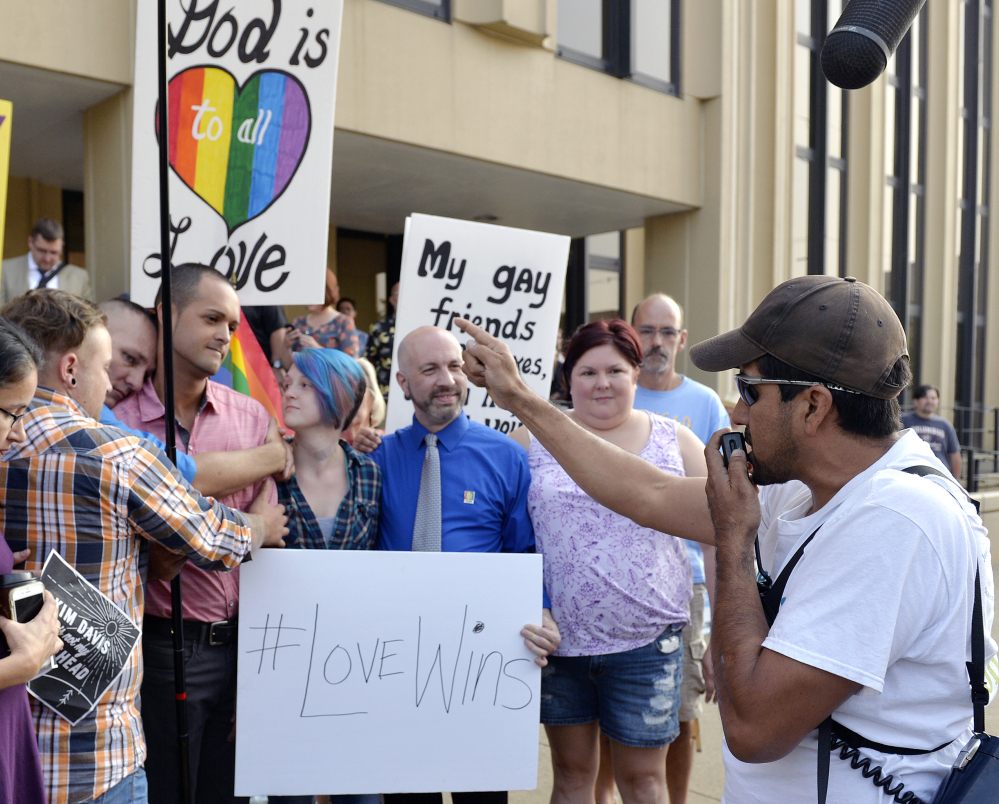The discrimination perpetrated against same-sex couples by Kim Davis, a county clerk in Kentucky, is awful and frustrating. But at least it is occurring out in the open, in full view of the public and media, and in clear violation of state and federal law.
As proved by the actions of the court that last Thursday held Davis in contempt and took her into custody, justice was slow, but it arrived.
That’s not the case for too many victims of discrimination who suffer indignities and violations without any remedy.
Following the Supreme Court’s decision in May on Obergefell v. Hodges, same-sex marriage is now legal in all 50 states, and with the exception of Davis and a few other scattered clerks, the calls to disregard the country’s highest court have been ignored.
But while same-sex couples are free to marry, they still can be discriminated against in shameful and degrading ways, without any protection from the law.
It is, for example, still legal in 29 states to discriminate in matters of hiring and employment on the basis of sexual orientation (and in three additional states, on the basis of gender identity).
Kansas is one of those states, so if a same-sex couple is caught on camera finally receiving their marriage license, and their boss sees it and disapproves, they could be fired the next day. And in this case, they would find no solace in the Supreme Court.
The same is true for housing discrimination, which is legal in all but 22 states and not addressed in federal law.
That can make it difficult for same-sex couples to find a place to live. According to a 2013 Department of Housing and Urban Development study, gay and lesbian couples “are significantly less likely than heterosexual couples to get favorable responses to email inquiries about electronically advertised rental housing.”
Another study, by the Equal Rights Center, a civil rights watchdog group, found similar barriers for same-sex couples applying for senior housing.
That’s not to mention the discrimination against transgender people, which is no doubt more acute, proving that just as bigotry against one minority shows signs of subsiding, there is always another to be misunderstood, mocked and isolated.
That’s why more states need to add protections for sexual orientation and gender identity, and why the federal Employment Non-Discrimination Act must be passed.
The situation in Kentucky is just the most recent and most public display of discriminations that happen, in ways large and small, throughout the country on a daily basis.
At least in that case, the people being discriminated against had recourse through the courts. Too often, they don’t.
Send questions/comments to the editors.



Success. Please wait for the page to reload. If the page does not reload within 5 seconds, please refresh the page.
Enter your email and password to access comments.
Hi, to comment on stories you must . This profile is in addition to your subscription and website login.
Already have a commenting profile? .
Invalid username/password.
Please check your email to confirm and complete your registration.
Only subscribers are eligible to post comments. Please subscribe or login first for digital access. Here’s why.
Use the form below to reset your password. When you've submitted your account email, we will send an email with a reset code.